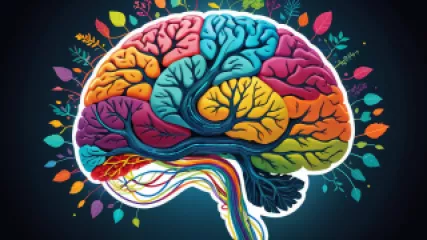Top 7 Memory Boosting Techniques to Increase Memory Capacity
Do you often find yourself struggling to remember important information? Do you wish you could boost your memory and increase your capacity to retain new knowledge? If so, you're not alone. Many people desire a stronger memory and enhanced cognitive skills to excel in their personal and professional lives.
Introduction
Memory is a crucial aspect of our daily lives. It allows us to recall past experiences, learn new things, and make informed decisions. However, memory can be influenced by various factors such as age, stress, and lifestyle choices. The good news is that there are techniques you can incorporate into your routine to boost memory retention and strengthen your cognitive abilities.
In this article, we will explore the top seven memory-boosting techniques that can help you increase your memory capacity. By incorporating these techniques into your daily life, you can improve your ability to remember information and enhance your overall mental wellness.
1. Practice Mindfulness Meditation
Mindfulness meditation is a powerful technique that has been shown to improve memory and attention span. By focusing your attention on the present moment and observing your thoughts without judgment, you can train your mind to stay focused and reduce distractions.
A study published in the Journal of Alzheimer's Disease found that regular mindfulness meditation can improve memory performance and increase the size of the hippocampus, a brain region associated with memory formation. To start practicing mindfulness meditation, find a quiet space, sit comfortably, and focus on your breath. Whenever your mind wanders, gently bring your attention back to your breath.
2. Get Sufficient Sleep
Sleep plays a vital role in memory consolidation. During sleep, your brain processes and stores information, making it easier for you to retrieve and remember it later. Lack of sleep, on the other hand, can impair your cognitive function and hinder memory formation.
Make sure to prioritize quality sleep by establishing a consistent sleep schedule, creating a relaxing bedtime routine, and optimizing your sleep environment. Aim for seven to nine hours of sleep per night to enhance your memory capacity and overall brain function.
3. Engage in Regular Physical Exercise
Physical exercise isn't just beneficial for your physical health; it also has a positive impact on your cognitive abilities, including memory. Exercise increases blood flow to the brain, stimulates the release of growth factors, and promotes the formation of new neurons.
Aerobic exercises, such as running, swimming, or cycling, have been particularly linked to improved memory and cognitive function. Aim for at least 150 minutes of moderate-intensity aerobic exercise per week to reap the memory-boosting benefits.
4. Follow a Brain-Healthy Diet
The food you eat can significantly impact your brain health and memory function. Following a brain-healthy diet rich in fruits, vegetables, whole grains, lean proteins, and healthy fats can provide the nutrients necessary for optimal cognitive function.
Include foods like blueberries, broccoli, walnuts, salmon, and turmeric in your diet, as they are known for their memory-enhancing properties. Avoid excessive consumption of processed foods, sugary snacks, and saturated fats, as they may impair memory and cognitive performance.
5. Challenge Your Brain
Keeping your brain active and engaged is essential for maintaining a strong memory. Engaging in activities that challenge your brain can help stimulate neural connections and strengthen cognitive skills.
Try activities such as puzzles, crosswords, chess, learning a new language, or playing a musical instrument. These types of mentally stimulating activities can improve memory recall and enhance overall cognitive function.
6. Practice Visualization Techniques
Visualization techniques can be a powerful tool for improving memory retention. By creating vivid mental images, you can enhance your ability to remember information.
For example, if you're trying to remember a shopping list, visualize each item in a specific location in your house. As you mentally walk through your home, associating each item with a familiar place, you'll find it easier to recall the items when you need them.
7. Stay Socially and Mentally Active
Engaging in social and mental activities has been shown to have a positive impact on memory and cognitive function. Maintaining social connections and participating in intellectually stimulating conversations and activities can help keep your brain sharp.
Join clubs, take part in group activities or discussions, and surround yourself with intellectually curious individuals. These interactions provide mental stimulation and can significantly contribute to improving memory and overall cognitive abilities.
In conclusion, improving your memory is an achievable goal by incorporating various techniques into your daily life. Practicing mindfulness meditation, getting sufficient sleep, engaging in regular physical exercise, following a brain-healthy diet, challenging your brain, practicing visualization techniques, and staying socially and mentally active are all effective ways to boost memory retention and increase memory capacity.
By adopting these techniques, you can strengthen your cognitive skills, enhance your mental wellness, and unlock your full memory potential. Remember, improving your memory is a lifelong journey, so be patient and consistent in implementing these techniques. Embrace the power of a strong memory and enjoy the benefits it brings to your personal and professional life.






